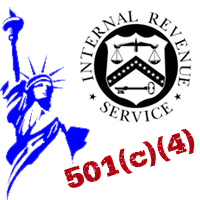The Exempt Organizations division of the IRS is functioning again judging from the considerable improvement we’ve been seeing in the time it takes to respond to applications. But while the substantial delays in processing submissions for tax-exemption have all but disappeared, we have recently seen a number of applications denied in order to restrict the nonprofits’ ability to conduct certain profitable business activities.
The IRS inquiries focus on the dual factors of private benefit and commerciality. The private benefit question seeks to determine if private individuals (including insiders) are getting a substantial benefit from the enterprise, which is not permitted under the regulations. The commerciality question seeks to determine if the organization is a “business” or a “charity” based on its relatively subjective criteria. As in all such matters, the difference between approval and denial seems to rest on the way in which the application is prepared.
The private benefit objection confirms our observation that the IRS has increasingly become distrustful of the use of nonprofits and charities as vehicles to operate a commercial business. The IRS presumes that operating a profitable business is likely to result in the charity being used to further the private interest of individuals, unless the applicant can refute that presupposition. One way to do this is to demonstrate that the primary objectives of the organization are purposes and activities that fit precisely within the parameters of Section 501(c)(3) as explained in the Exempt Organizations Determinations Manual.
The IRS also looks to see whether or not certain safeguards have been adopted, including policies on compensation and conflicts of interest, procedures that ensure that the board has timely and accurate information, that the terms of these arrangements are clearly understood, and that the organization’s treasurer, bookkeeper and auditors are independent and have no conflicts of interest. Transactions with private individuals must be done at arm’s length, and on terms that are fair and reasonable (even concessionary) to the charity.
To the extent that the commercial venture will benefit individuals, the IRS wants the applicant to establish that those benefits are merely “incidental”. An incidental benefit is one which is not “substantial.” There is a qualitative test and a quantitative test, summarized on the IRS website.
The IRS also wants applicants to show that the benefits of the activity flow primarily to the public, not to private individuals, and that the majority of the organization’s governing board does not personally benefit from the organization’s activity (except if they are members of the charitable class to be served.) There is no absolute ban on interested directors, but a majority of the board must be independent and disinterested. If a small number of people control the venture and receive benefits, either directly or through an intermediary, it will be problematic in the view of the IRS. In the final analysis, any benefits to private individuals must be a “mere byproduct” of the activity, and must be no greater than is necessary to accomplish the charitable mission.
The current commerciality issue is a remnant of the “Commerciality Doctrine,” a discredited guideline used back in the 60s, 70s and 80s. Under this guideline, the IRS denied exemption to organizations which were operating businesses, even if the business was run in such a way as to accomplish charitable or educational goals and did not benefit private individuals. The IRS simply declared (and many authorities agreed) that you had to be either a business or a charity – there was no middle ground. Fortunately, over time, the growth of commercial activity in the sector has required the IRS to develop a more nuanced approach. To some extent, the expansion of private benefit discussed above reflects that approach. But it seems when the IRS wants to deny an application but cannot articulate other grounds, it will default back to the doctrine of commerciality.
Nonprofit commercial activity is good for the sector – it helps organizations to be more self-reliant, resilient, and enhances their opportunities to expand programs. That why it is crucial to craft the tax exemption application to get around any objection of private benefit or commerciality. The organization then has the option of adjusting its governance or commercial arrangements if necessary to make them acceptable to IRS. The extra effort to get it right could make the difference between an organization that merely functions and one that flourishes.
-
Perlman & Perlmanhttps://www.staging-perlmanandperlman.com/author/nancyisrael/
-
Perlman & Perlmanhttps://www.staging-perlmanandperlman.com/author/nancyisrael/
-
Perlman & Perlmanhttps://www.staging-perlmanandperlman.com/author/nancyisrael/
-
Perlman & Perlmanhttps://www.staging-perlmanandperlman.com/author/nancyisrael/











